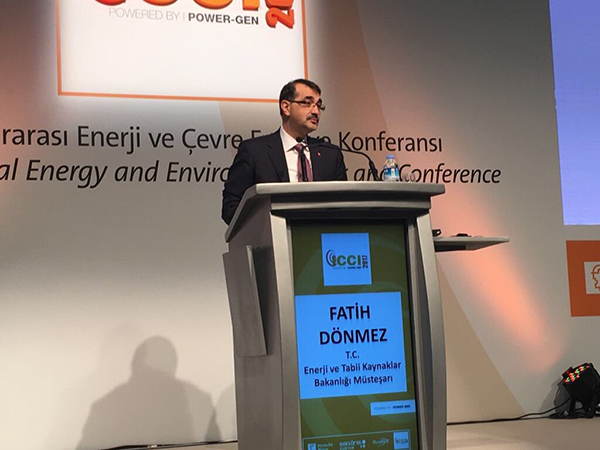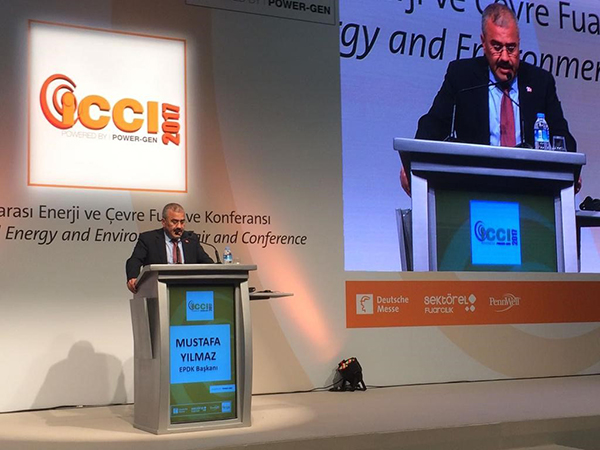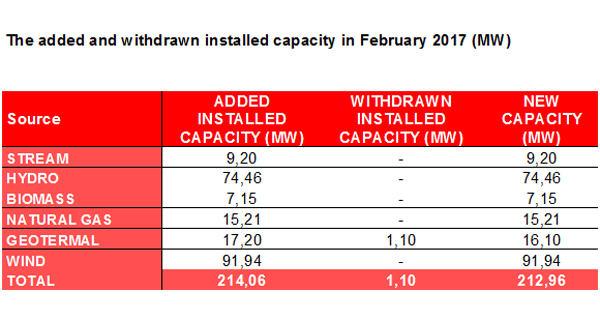
23rd International Energy & Environment Fair & Conference (ICCI 2017) brought the energy sector together in Istanbul.
Speaking at the opening ceremony of ICCI 2017, Fatih Donmez, Undersecretary of Turkish Ministry of Energy and Natural Resources, said that they see renewables as a chance for transformation of Turkey. Donmez said, Turkey is not going to produce the entire energy from coal, but put the most efficient coal fields into use.

Fatih Donmez underlined that one of the key performance indicators that the Ministry will look for is going to be indigenousness in technology and employment.He said, the first tender in solar power was held with Renewable Energy Resources Area Project (YEKA) model and the offers will be received in the wind energy too.

“Important progress achieved in domestic resources”
Ziya Altunyaldiz, Chairman of Industry, Trade, Energy, Natural Resources Information and Technology Commission in Turkish Grand National Assembly said, Turkish energy sector have been developing rapidly.
Saying that the country is in the effort of providing the energy demand from domestic resources in a continuous way, Altunyaldiz underlined that important progress have been achieved with 49 percent domestic resources in electricity.
Altunyaldız said that, they aim to export Turkish renewable energy technology to the countries of the region and have contribution to the economy.

“Wind power capacity increased by 300 times”
Mustafa Yilmaz, Chairman of Turkey's Energy Market Regulatory Authority (EMRA) stated that Turkey’s installed capacity in electricity is approaching 80 thousand megawatts and the share of the private sector reaches 75 percent.
Underlining that it is not enough, Yilmaz said, new ways of investment opportunities must be searched with environmental sensitivity. He said, along with the incentives provided to renewable sources, there is a great interest to wind, geothermal, water and biomass power generation. Yılmaz said:
"The installed power in wind energy was 19 megawatts in the year of 2000. Today it reached to 6 thousand megawatts. In other words, we increased our wind power by 300 times in 15 years. We started to take the quick steps in solar energy to use our potential in the best possible way.” Yilmaz added that the energy infrastructure, which is smart grid and smart meter implemented, technologically transformed and sensitive to the environment, will be built too.








